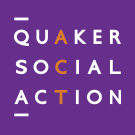Before the coronavirus pandemic, more than one in five people in the UK lived in poverty according to the Joseph Rowntree Foundation UK poverty report for 2020/21.
After a visit to the United Kingdom in 2018, the United Nations Special Rapporteur on extreme poverty and human rights, Philip Alston, expressed great concern that “14 million people, a fifth of the population, live in poverty. Four million of these are more than 50% below the poverty line, and 1.5 million are destitute, unable to afford basic essentials.”
Cost of living
The cost of living scandal is hitting people on low incomes hardest, putting immense pressure on already stretched household finances.
The Institute for Fiscal Studies has found that inflation for those on low incomes was three percentage points higher than that being experienced by wealthier families.
We are getting reports from our frontline workers and those we train of people:
- Going without food to save money for rent
- Disconnecting the gas to save money
- Not cooking food to save energy costs
People report an increasing sense of pressure from trying to support family members and a lot of fear for the future.
This issue has been further analysed by the Joseph Rowntree Foundation, whilst the Food Foundation has found that an increasing number of people in the UK are facing situations in which they cannot afford to meet their basic needs.
The coronavirus pandemic and poverty
The coronavirus pandemic has had a significant and unequal impact on people’s finances – with a sharp increase in claims for Universal Credit in April 2020, and a record 2.5 million emergency food parcels given to people in crisis by the Trussell Trust between April 2020 and March 2021.
At Quaker Social Action, our UK-wide helpline for people struggling with funeral costs saw a 89% increase in demand during December 2020 - February 2021 compared with the same period 12 months previously.
A survey by the Legatum Institute found that almost 700,000 people had been driven into poverty as a result of the pandemic by winter 2020, including 120,000 children.
The predicted long-term effects of the pandemic include high unemployment that pushes many families into poverty, at a scale 10 times greater than the 2008 financial crisis according to the BMJ (2020).
Defining and measuring poverty
There are different approaches to defining and measuring poverty. Two commonly used measures are:
- Relative measures that look at the resources people have and compare them to the overall population. People with the least are considered to be in poverty compared to everyone else. This is how the ‘poverty line’ is defined.
- Absolute measures that look to define the essentials that people require for a decent standard of living – those who can’t afford these essentials are considered to be in poverty.
Child poverty
Child poverty is defined by the Child Poverty Action Group as existing when parents can’t afford to pay for basics such as food, housing and clothes - it affects one in four children in the UK.
46% of children from black and minority ethnic groups are in poverty in the UK, compared with 26% of children in white British families (End Child Poverty, 2020).
The impact of poverty – individuals, families and communities
Living without the security of decent housing with constant pressure created by low paid work or unemployment has significant consequences for emotional and psychological well-being, health, family relationships and the lives of children.
Research from the Joseph Rowntree Foundation (2015), has shown that the experience of poverty significantly affects the way we think, feel and act. It can crush individual confidence, hope, and ambition. It stifles people's ability to participate in our society.
Prevailing attitudes to poverty stigmatises individuals
Portrayals of poverty in the media often denigrate and demonise the individuals who have to deal with its effects directly. The prevailing discourse tends to ignore the structural causes, such as wage inequality, employment opportunities including racial discrimination, and barriers to work. It simplifies and reduces poverty down to individual choice pitting the heroic 'working poor' against the feckless 'scroungers' on benefits. It rarely recognises the costs and impact of our unequal society on us all.
